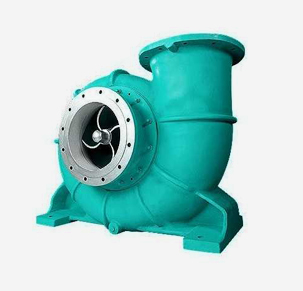English
- Afrikaans
- Albanian
- Amharic
- Arabic
- Armenian
- Azerbaijani
- Basque
- Belarusian
- Bengali
- Bosnian
- Bulgarian
- Catalan
- Cebuano
- Corsican
- Croatian
- Czech
- Danish
- Dutch
- English
- Esperanto
- Estonian
- Finnish
- French
- Frisian
- Galician
- Georgian
- German
- Greek
- Gujarati
- Haitian Creole
- hausa
- hawaiian
- Hebrew
- Hindi
- Miao
- Hungarian
- Icelandic
- igbo
- Indonesian
- irish
- Italian
- Japanese
- Javanese
- Kannada
- kazakh
- Khmer
- Rwandese
- Korean
- Kurdish
- Kyrgyz
- Lao
- Latin
- Latvian
- Lithuanian
- Luxembourgish
- Macedonian
- Malgashi
- Malay
- Malayalam
- Maltese
- Maori
- Marathi
- Mongolian
- Myanmar
- Nepali
- Norwegian
- Norwegian
- Occitan
- Pashto
- Persian
- Polish
- Portuguese
- Punjabi
- Romanian
- Russian
- Samoan
- Scottish Gaelic
- Serbian
- Sesotho
- Shona
- Sindhi
- Sinhala
- Slovak
- Slovenian
- Somali
- Spanish
- Sundanese
- Swahili
- Swedish
- Tagalog
- Tajik
- Tamil
- Tatar
- Telugu
- Thai
- Turkish
- Turkmen
- Ukrainian
- Urdu
- Uighur
- Uzbek
- Vietnamese
- Welsh
- Bantu
- Yiddish
- Yoruba
- Zulu
Telephone: +86 13120555503
Email: frank@cypump.com
Dec . 09, 2024 23:49 Back to list
Self-Priming Wastewater Pumps Efficient Solutions for Effective Wastewater Management Systems
Understanding Self-Priming Wastewater Pumps A Comprehensive Overview
Self-priming wastewater pumps are essential tools in various industries, particularly in waste management and water treatment. These pumps are specifically designed to handle wastewater efficiently without requiring manual priming before operation. Unlike standard pumps, which rely on the presence of liquid to function properly, self-priming pumps can create a vacuum that draws fluid into the pump casing. This makes them highly valuable in situations where the source of water is located below the pump's level or in scenarios where water levels fluctuate.
How Self-Priming Pumps Work
The primary characteristic that sets self-priming pumps apart from traditional pumps is their ability to initiate suction. Self-priming pumps utilize a specialized design that allows them to create an air and liquid mixture in the pump casing. The process begins when the pump is started. The rotating impeller generates a centrifugal force that creates a vacuum, drawing air from the suction line. As the impeller continues to spin, it pushes the air out while simultaneously drawing liquid into the casing. Once the pump is filled with liquid, it can then begin to expel it efficiently.
Advantages of Self-Priming Wastewater Pumps
1. Ease of Installation and Operation One of the most significant advantages of self-priming wastewater pumps is their straightforward installation. Since these pumps can initiate their suction, they eliminate the need for complex priming systems or practices, simplifying setup and operation.
2. Versatility Self-priming pumps are capable of handling a wide range of wastewater types, including wastewater with solids, sludge, and other materials. This versatility makes them ideal for municipal wastewater treatment facilities, construction sites, and industrial applications.
3. Reduced Maintenance These pumps typically require less maintenance compared to standard pumps. The design minimizes the risk of contamination and clogging because they can handle solid and semi-solid materials more effectively. Additionally, fewer components mean fewer parts that can wear out or require replacement.
4. Operational Reliability Self-priming wastewater pumps are known for their reliability. Since they can quickly evacuate any air trapped in the system and continue operating without interruption, they are less likely to experience downtime, which is critical in wastewater treatment applications.
Applications of Self-Priming Wastewater Pumps
self priming wastewater pump

Self-priming wastewater pumps find applications in a multitude of settings. In the construction industry, these pumps are often used for dewatering excavations, especially when groundwater needs to be removed to create a dry work environment. In municipal applications, they are used to transport sewage and other wastewater to treatment facilities. Additionally, these pumps are employed in industrial situations where process water, cooling water, or effluent needs to be managed efficiently.
Selecting the Right Self-Priming Pump
When choosing a self-priming wastewater pump, several factors should be considered
- Flow Rate Determine the flow rate needed for your specific application. Self-priming pumps come in various sizes, so it is essential to select one that meets the required capacity.
- Total Dynamic Head Understand the total dynamic head that the pump needs to overcome, including factors like the vertical lift and friction losses in the piping system.
- Material Compatibility Ensure that the pump materials are compatible with the type of wastewater being handled, including any abrasive or corrosive substances.
- Portability and Size Depending on your application, you may need a portable pump or one suitable for fixed installation. Consider the space where the pump will be used.
Conclusion
Self-priming wastewater pumps play a crucial role in modern wastewater management. Their ability to operate without manual priming, combined with their versatility and reliability, makes them indispensable for various industries. By understanding the operating principles, advantages, applications, and considerations for selection, businesses and municipalities can make informed decisions that enhance their wastewater treatment operations, improve efficiency, and contribute to environmental sustainability. As technology continues to advance, self-priming pumps are likely to evolve, incorporating more innovative solutions that further improve their functionality and performance.
-
ISG Series Vertical Pipeline Pump - Chi Yuan Pumps Co., LTD.
NewsJul.30,2025
-
ISG Series Vertical Pipeline Pump - Chi Yuan Pumps Co., LTD.|energy-efficient fluid handling&industrial durability
NewsJul.30,2025
-
ISG Series Vertical Pipeline Pump - Chi Yuan Pumps | Advanced Engineering&Industrial Efficiency
NewsJul.30,2025
-
ISG Series Pipeline Pump - Chi Yuan Pumps | High Efficiency, Energy Saving
NewsJul.30,2025
-
ISG Series Vertical Pipeline Pump-Chi Yuan Pumps|High Efficiency&Reliable Performance
NewsJul.29,2025
-
ISG Series Vertical Pipeline Pump|High Efficiency&Low Noise
NewsJul.29,2025










